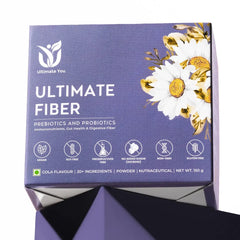PCOS woes? Try natural remedies such as turmeric, cinnamon, balanced diets, and regular exercise to manage symptoms, regulate cycles, and boost overall health.
PCOS is one of the biggest issues we face in today’s world and has become so common that we see this word getting thrown around all the time.
But what exactly is PCOS?
Why do people struggle with it so much?
Most importantly, what is the best way to get rid of it naturally?
What is PCOS?
Polycystic Ovary Syndrome (PCOS) is something that involves hormone imbalances that can cause irregular periods, ovarian cysts, acne, weight gain, and fertility issues. While managing PCOS often involves medication, natural remedies can also help alongside traditional PCOS treatments.
PCOS affects women of all age groups. Adolescent girls with PCOS experience irregular periods, weight gain, and increased body hair in male patterns. Women of reproductive age with PCOS are at higher risk of miscarriages, infertility, hypertension, and gestational diabetes during pregnancy, as well as infant mortality post-birth.
PCOS in later years can lead to serious health issues such as type-2 diabetes, heart disease, high blood pressure, heavy menstrual bleeding, and uterine cancer.
Although no cure has been found for this, studies have shown that if one commits to it, this condition can easily be managed through diet, exercise, and medication.
What causes PCOS?
The exact cause of PCOS is still unclear, but it's linked to a condition called insulin resistance, where the body makes too much insulin. Here are some factors that contribute to the development of PCOS:
1. Male Hormones: PCOS is associated with higher levels of male hormones in the body, leading to more facial hair, acne, and irregular periods because they can stop eggs from being released.
2. Obesity: Being overweight is often linked to PCOS, but it's not clear if one causes the other. Managing weight is important if you have PCOS.
3. Heredity: PCOS can run in families, which suggests that certain genes might play a role in developing the condition.
4. Insulin Resistance: When your body stops responding to insulin, it tries to compensate by producing even more insulin. This can raise male hormone levels, disrupt ovulation (release of eggs), and contribute to weight gain. Dark patches on the skin can be a sign of insulin resistance.
These factors all contribute to PCOS, but the exact reasons why some people get it and others don't are still being studied.
Symptoms of PCOS
PCOS symptoms vary depending on the individual's health, but common signs include:
- Irregular, absent, or light menstrual cycles
- Excessive body hair (hirsutism) on the chest, stomach, back, face, or chin
- Weight gain around the abdomen
- Mood swings
- Pelvis pain
- Enlarged ovaries
- High blood pressure
- Diabetes
- High cholesterol
- Acne breakouts
- Difficulty conceiving naturally
- Skin tags in the armpits or neck
- Skin darkening, especially in skin folds like the neck, groin, or under breasts
- Hair thinning or loss (alopecia)
Different Types of PCOS
PCOS can manifest in different ways for teens and adults. So, let's explore what are the various types of PCOS:
Insulin-resistant PCOS
It is one of the most common types of PCOS. 65-70% of women with PCOS suffer from insulin-resistant PCOS, as per NCBI (National Center for Biotechnology Information) reports. It happens when the cells in the body grow resistant to insulin, resulting in increased amounts of insulin in the blood. It increases androgens (male hormones) and disturbs the body's natural hormonal balance.
Lean PCOS
Lean PCOS mainly impacts women of normal or lower weight. Despite not being overweight, women with lean PCOS experience hormonal irregularities and erratic menstrual cycles. To detect this test, it is advised by doctors to undergo blood tests to measure hormone levels.
Inflammatory PCOS
PCOS is characterised by low-grade inflammation in the body, which can worsen insulin resistance and hormonal irregularities. This form of PCOS often presents with additional symptoms like persistent fatigue, joint pain, and gastrointestinal issues.
Hidden-cause PCOS
Hidden-cause PCOS refers to situations in which the underlying cause of PCOS is not easily identifiable. It could be genetic, environmental, or factors such as thyroid disease, iodine deficiency (since ovaries need iodine), a vegetarian diet, and artificial sweeteners may play a role.
Pill-Induced PCOS
PCOS induced by medication, such as birth control pills, can cause PCOS-like symptoms, but it is reversible and typically disappears after stopping the drug.
Adrenal PCOS
Adrenal PCOS, a rare form of PCOS, is distinguished by the excess production of androgens by the adrenal gland. This type is indicated by excessive hair growth, acne, and irregular menstrual periods.
Post-pregnancy PCOS
After childbirth, you may develop post-pregnancy PCOS, which is also referred to as postpartum PCOS. The body's natural hormonal balance can be affected by hormonal changes during and after pregnancy, leading to symptoms of PCOS.
Home Remedies To Treat PCOS
Explore easy and natural home remedies for managing PCOS effectively. Learn more about these helpful methods to improve your health. Scroll down!
Flaxseeds
Flaxseeds help lower the level of androgen in the body, thus reducing symptoms of PCOS, such as abnormal hair growth and increased body hair caused by elevated androgen levels. Adding flaxseeds to your regular diet, whether by blending them into milkshakes and smoothies or consuming them directly, can improve your overall well-being.
Mulethi
Mulethi, also called liquorice, is essential for controlling PCOS. It is a powdered root that works against androgens and encourages an enzyme that changes androgens to estrogen. All you have to do is pour it into a cup of hot water, mix it, and consume it. Continue using this infusion for a longer duration to see the results.
Fish Oil or Omega 3 Supplements
Omega-3 fatty acid supplements help maintain a regular menstrual cycle, but they do not have an impact on weight, bleeding, ovarian size, or the number of follicles. Furthermore, supplementation with fish oil can reduce the waist-hip ratio.
Cinnamon could restore oestrous cyclicity and ovary morphology, down-regulate serum levels of testosterone, improve insulin sensitivity and decrease IGF-1 levels.
Pumpkin Seeds are a superfood for women with hormonal imbalances. They contain zinc and magnesium, which help reduce inflammation, regulate hormones, and improve reproductive health. Additionally, pumpkin seeds provide essential fatty acids and antioxidants that support heart and urinary tract health. Furthermore, they contain tryptophan, which can help improve sleep quality.
Hemp Seeds are packed with phytochemicals that aid in weight management. Cannabidiol in hemp regulates the function of the body's mitochondria, leading to improved efficiency in burning extra sugar and fat for energy. This helps reduce hunger and calorie intake while promoting the healthy breakdown of fat by regulating insulin and blood sugar levels.
Nigella, commonly known as black seeds, is known to reduce inflammation, lower oxidative stress, decrease insulin resistance and lower concentrations of luteinizing hormone (LH) and androgen in the bloodstream.
It has also been claimed to improve menstrual cycles and induce regular ovulation in women with PCOS through the reduction in the ratio of LH to the follicle-stimulating hormone.
Sunflower Seeds, with their rich content of selenium, vitamin E, and magnesium, are not just a tasty snack. They can empower you to take control of your PCOS symptoms by boosting progesterone production and balancing inflammation and mood swings.
Including chia seeds in your routine will help maintain regular hormones and normalised flow. Chia seeds are full of fiber, which is an essential constituent when it comes to PCOS; other than that, they also contain Omega-3 fats, which are required for hormonal balance.
Fenugreek Seeds help regulate the menstrual cycle, promote egg maturation, and reduce ovarian volume to aid with infertility, contributing to overall ovarian health.
Sesame Seeds
Nutrients that are vital for progesterone synthesis, such as zinc, are abundant in sesame seeds. Zinc has also been found to alleviate dysmenorrhea and painful periods. They also contain lignans and omega-3 fatty acids, which help to block excess oestrogen.
Pomegranate
The high levels of polyphenols in pomegranate seeds provide anti-inflammatory and antioxidant properties. Pomegranate juice protects against ovarian ischemia and reperfusion injury, regulating menstrual cycles.
Seed Cycling For Women With PCOS
Seed cycling is a practice that benefits you by allowing you to eat specific seeds during different phases of your menstrual cycle. It’s said to help with PCOS and hormonal balance. The menstrual cycle has the follicular phase and the luteal phase. During the follicular phase (days 1–14), 1-2 teaspoons of ground flax and pumpkin seeds containing omega-3 and zinc are recommended to support oestrogen metabolism.
Consume 1-2 teaspoons of raw, freshly ground sunflower and sesame seeds daily from ovulation to luteal phase (days 15-28). These seeds are a source of vitamin E and selenium, which support progesterone production. When incorporated alongside a well-rounded diet, consistent physical activity, and effective stress control, this technique assists in maintaining the balance of oestrogen and progesterone. One can incorporate seeds into smoothies, salads, or oatmeal.
However, it's essential to consume these seeds in moderation to avoid potential digestive issues or allergic reactions.
Lifestyle Modifications To Overcome PCOS
Living with PCOS involves managing its symptoms and promoting overall health through lifestyle changes and natural remedies. While there's no cure for PCOS, adopting certain habits can help alleviate symptoms and improve quality of life.
Here’s what you can do to support a better health and lifestyle for PCOS:
Diet Therapy
An anti-inflammatory and reduced-calorie diet with a low glycemic index (GI) can be beneficial in treating menstrual irregularities. Low GI (LGI) diets like quinoa, lentils, oats, etc., can help decrease insulin resistance, fasting insulin, total and low-density lipoprotein (LDL) cholesterol, triglycerides, waist circumference, and total testosterone when compared with high GI (HGI) diets.
Additionally, the ketogenic diet is another low-GI modification that involves limiting the consumption of total carbohydrates in favour of plant-based fat. In obese women with PCOS and liver dysfunction, Ketogenic diet has been found to improve menstrual cycle, improve liver function, and treat fatty liver.
Eat Well
Start with the basics. Focus on eating fruits, vegetables, lean proteins and avoid sugary snacks and processed foods. We all know this is the toughest as well, but start by substituting things for the better instead of just cutting down.
Eliminate excess carbohydrates such as white and bran bread. Reduce consumption of sodas, energy drinks, margarine, shortening, lard, and red meat.
Exercise Regularly
Try to take a walk every day. We believe it’s more about compounding. Make it a habit. And try to switch up. Try yoga, meditation, pottery, and anything else that will make you work a bit more than usual.
Managing Stress
Stress can increase PCOS symptoms. Meditation, deep breathing, or yoga can be added to your routine to manage stress and enhance your mental and physical health effectively.
In addition to making lifestyle changes, incorporating specific health supplements into your routine can play a valuable role in managing Polycystic Ovary Syndrome (PCOS) symptoms effectively. Some of those are:
- Inositol: This compound is like a B vitamin and may improve insulin sensitivity and regulate menstrual cycles.
- Vitamin D: Many women with PCOS have lower levels of vitamin D, which is important for overall health and hormone balance.
The Importance of Self-Care
Living with PCOS can be tough, but you're not alone. By trying different natural remedies, making lifestyle changes, and maybe using supplements, you can manage your symptoms better and improve your well-being.
- Take Control of Your Wellness
- Take care of yourself by exploring different options.
- Alongside natural remedies, consider trying products designed to support managing PCOS.
- Small changes can make a big difference over time.
If you've been diagnosed with PCOS, you might be worried about the long-term effects of the condition and its treatment. Some individuals are concerned that they'll have to take oral contraceptives for an extended period, while others are anxious about potential challenges related to weight management and fertility.
When should I seek medical care?
Seek medical care for PCOS if you notice persistent symptoms like irregular periods, excessive hair growth, or difficulty conceiving. PCOS diagnosis in young women can be challenging due to irregular periods, but if irregularities persist beyond the first two years, it could indicate PCOS. Early diagnosis is vital for addressing symptoms and potential long-term health implications.
Conclusion
PCOS is a multifaceted condition that can deteriorate due to unhealthy lifestyle habits. Despite its genetic links preventing complete cure, there are measures we can adopt to effectively manage and prevent its exacerbation. The foremost measures revolve around lifestyle modifications.
Balancing all elements of life, such as diet, sleep, stress, and exercise, is crucial. It's not only about diet but also about maintaining equilibrium in every aspect of life. Seed cycling can assist in regulating your menstrual cycle and reducing premenstrual symptoms.
Additionally, various herbal supplements have demonstrated remarkable efficacy. Start by trying out the Supergreens by Ultimate You. It contains more than 40+ superfoods in just one scoopful of yumminess. Moreover, it’s important to comply with your doctor's guidance and make necessary lifestyle adjustments.
Disclaimer
The information provided is for educational purposes only and is not intended to be a substitute for medical treatment. If you're pregnant, nursing, taking medication, or have a medical condition, it's better to consult a healthcare professional. Ultimate You does not provide any guarantee regarding the accuracy, adequacy, completeness, legality, reliability, or usefulness of the information and disclaims any liability arising from it.

Sai Tirumala Vasireddy
Certified Nutritionist
Holds a master’s degree in Food and Nutritional Sciences and specialised in Applied Nutrition. Passionate about sports nutrition, she focuses on enhancing individual’s performance through customised diet plans and sustainable eating habits. Her expertise and enthusiasm for healthy living make her a valuable resource for those seeking to improve their health and performance.
Tags
Frequently Asked Questions
How does PCOS affect fertility?
PCOS can disrupt ovulation, making it challenging to conceive. With proper treatment and lifestyle changes, many women with PCOS can still get pregnant.
What is PCOS and PCOD?
PCOS encompasses hormonal imbalances, irregular periods, and other symptoms, while PCOD specifically refers to the presence of ovarian cysts.
How does food intake affect hormone balance in PCOS?
A balanced diet low in carbs and sugars helps regulate insulin levels, which is crucial for managing PCOS symptoms like weight gain and insulin resistance.
What foods can trigger PCOS symptoms?
It's advisable to limit processed foods, sugary snacks, and high-glycemic-index foods as they can exacerbate insulin resistance and hormone imbalances associated with PCOS.
Can supplements help with PCOS symptoms?
Supplements like inositol, vitamin D, and omega-3 fatty acids have shown improvement in insulin sensitivity and menstrual regularity.
Is it possible to manage PCOS without medication?
Lifestyle changes like maintaining a healthy weight, regular exercise, and a balanced diet can effectively manage PCOS symptoms for many women without medication.
- Choosing a selection results in a full page refresh.
- Opens in a new window.
15%

on your next order
By submitting your email address, you agree to receive marketing emails from Ultimate You at the email address provided. We may use information collected about you on our site to suggest the products and offers. you can withdraw your consent at any time by following the unsubscribe instructions in any email we send to you. view Terms and Privacy. Contact Ultimate Customer Care at #204-8430 Saint Monica Building, near Char Miner, Hyderabad, India, 203455.








